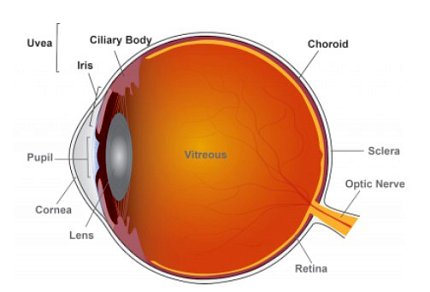Improving Vision in People with Chronic Inflammatory Eye Condition

Photo: NEI
Repeat treatment with corticosteroid injections improved vision in people with persistent or recurrent uveitis-related macular edema better than two other therapies, according to results from an NEI-funded clinical trial.
Compared with methotrexate or ranibizumab intravitreal (in-the-eye) injections, the corticosteroid treatment achieved greater reductions in retinal swelling and was the only therapy in the study that improved vision. The report was published in Ophthalmology.
Uveitis is a collection of inflammatory conditions that affect the internal tissues of the eye. Inflammation in the eye can lead to fluid buildup in the central part of the eye’s light-sensing retina, known as the macula, and decrease vision. This fluid buildup, called macular edema, is a complication of uveitis that often persists or recurs over time, despite uveitis treatment.
In this study, researchers compared three treatments for uveitis-related macular edema. Earlier, small pilot studies suggested that ranibizumab injections and the anti-inflammatory effects of methotrexate might help reduce uveitis-related macular edema.
The clinical trial enrolled 194 participants with well-controlled uveitis but persistent or recurrent macular edema at clinical centers in the U.S., U.K., Australia and India. Sixty-five participants received a dexamethasone corticosteroid, 65 received methotrexate and 64 received ranibizumab.
After 12 weeks, all three groups showed reductions in retinal swelling. Reduction was greatest in the dexamethasone group compared to the other. In addition, only the corticosteroid group showed improvement in vision, nearly five letters—about one row on an eye chart.
Lead study author Dr. Nisha Acharya of UC-San Francisco said, “Intraocular corticosteroid treatment remains the most effective therapy for uveitis-related macular edema.”
